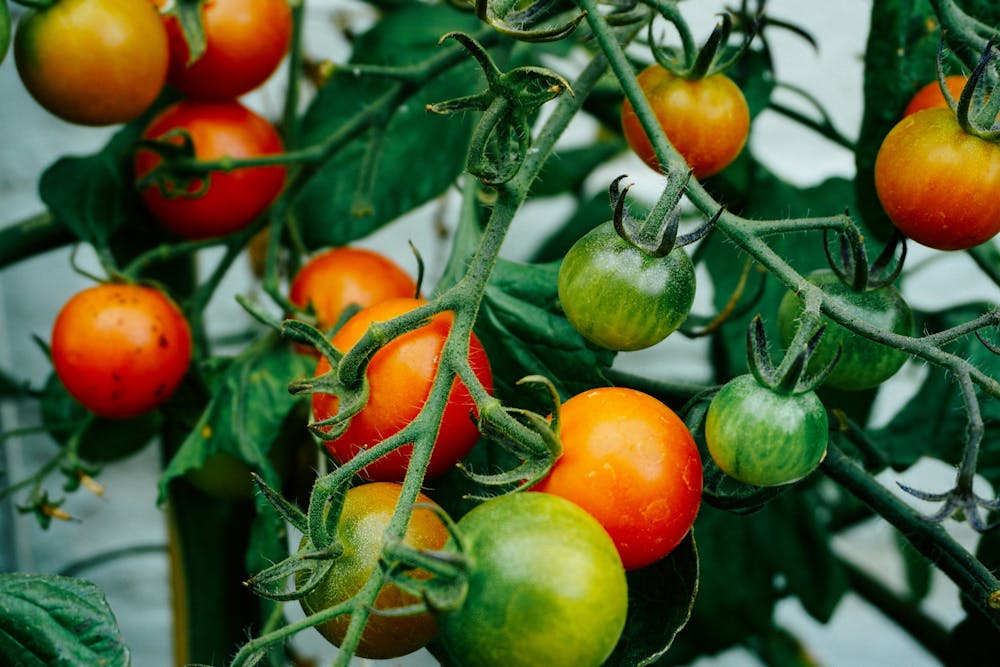University of New Mexico researchers sent tomatoes to space in an endeavor called the Trichoderma Associated Space Tomato Inoculation Experiment (TASTIE).
On Tuesday, Jan. 30, the tomato seedlings were launched in a partially reusable Falcon 9 Block 5 rocket into space and joined the International Space Station (ISS) on Thursday, Feb. 1, according to Everyday Astronaut.
The purpose of TASTIE is to analyze how these tomatoes will grow in space compared to how they grow on Earth. The fungus Trichoderma – common in all types of soils on Earth – will be utilized to study how the stress-resistant properties of the fungus impact the growth of tomatoes in space, according to UNM Newsroom.
The experiment was done in collaboration with the University of Wisconsin-Madison. Researchers chose to use the Red Robin variety of tomatoes, according to the UW-Madison Gilroy Life Science Lab. The Red Robin tomato’s small size and fast growth accommodates the limited space of the ISS, David Hanson – UNM biology professor and lead TASTIE researcher – said.
“No one's tried this sort of interaction in space with tomatoes,” Hanson said.
On the ISS, astronauts will measure the conditions and growth of the tomatoes for two weeks. They will harvest and freeze plant material, then send the plants to researchers at UNM through a space capsule, Hanson said.
Once UNM receives the frozen plant material, researchers will compare carbon dioxide isotopes of the TASTIE tomatoes and Earth-grown tomatoes to discover the experimented tomatoes’ efficiency, Hanson said.
This research can aid long-term space missions by discovering the conditions that will maximize vegetable growth in space.
“We really want to work towards being part of a team that has plants growing on the moon. That's something that we expect to see in the next handful of years,” Hanson said.
The launch initially suffered delays, pushing its initial launch date from June 2023 to Jan. 29, 2024. The launch was delayed again until Jan. 30 due to necessary space capsule modifications, Hanson said.
Another problem arose during the preparation when Hanson and his team almost ran out of liquid nitrogen – a freezing agent used in the experiment to freeze the tomatoes before sending them up.
“The University is never out of nitrogen but they didn't have any backup. Fortunately, we ended up being fast enough (to freeze the experimented material) that we didn't run out,” Hanson said.
Get content from The Daily Lobo delivered to your inbox
The plant samples, Hanson said, are expected to be delivered to UNM by March with the researchers’ findings complete three to six months after.
The experiment is a part of UNM’s Grand Challenges Initiative, which aims to create sustainable space research opportunities at the University. Hanson hopes the experiment will help build resources for research on campus and encourage students and faculty to pursue space research at UNM.
Hanson recommends students interested in space-related research to fill out the CHILI HOUSE application. The application is for UNM’s NASA Minority Innovation Challenges Institute for Discovery and Space — an undergraduate research project related to NASA’s Artemis mission, according to NASA minds.
“Whether you're a student who just started, or you're a student who is just about ready to finish – if you’re interested in an experiment, internship or in what space jobs there are, we'd love to know what people want to know,” Hanson said.
Nate Bernard is a beat reporter with the Daily Lobo. He can be reached at news@dailylobo.com or on Twitter @DailyLobo






